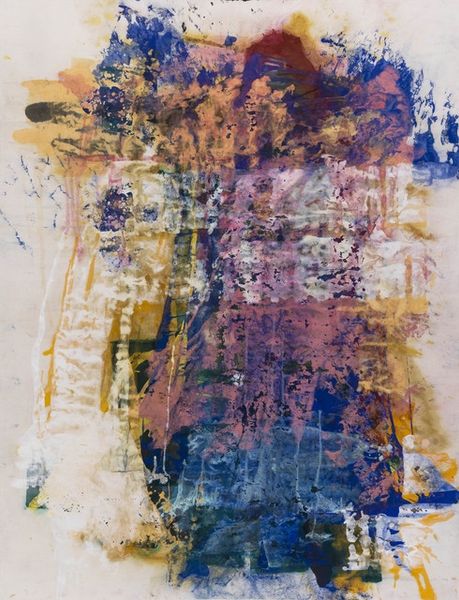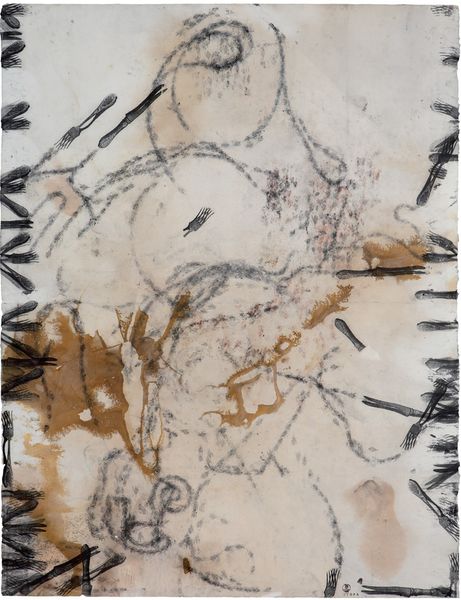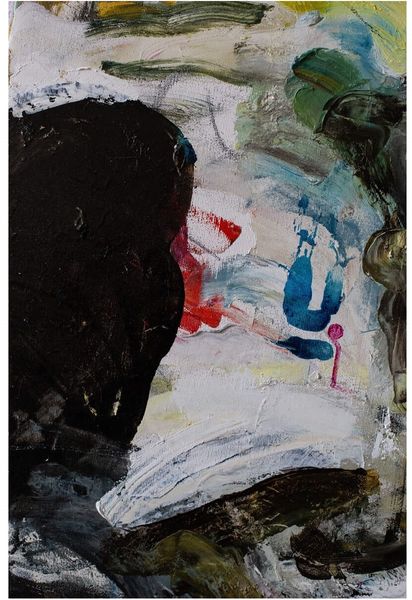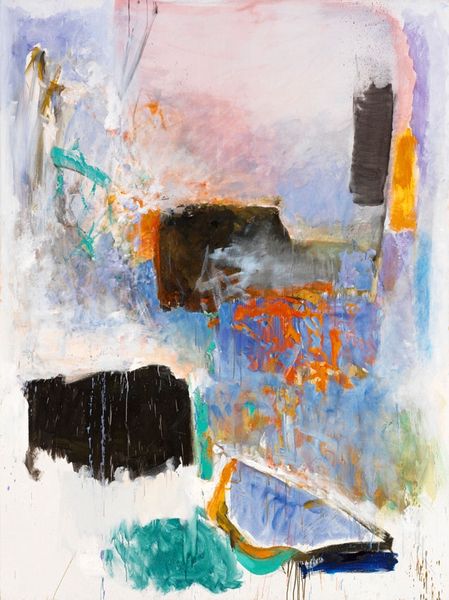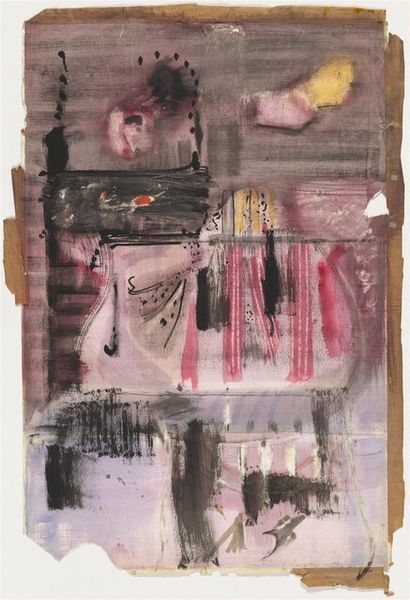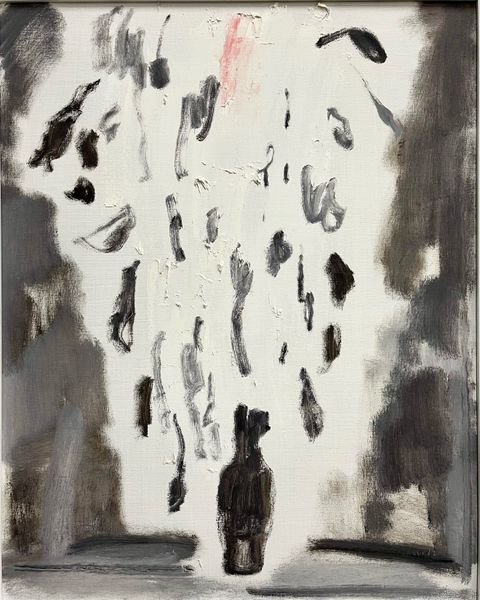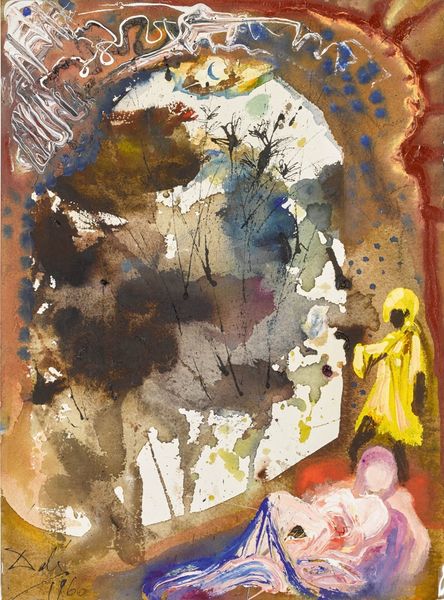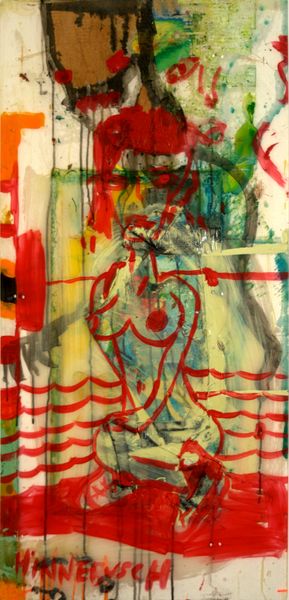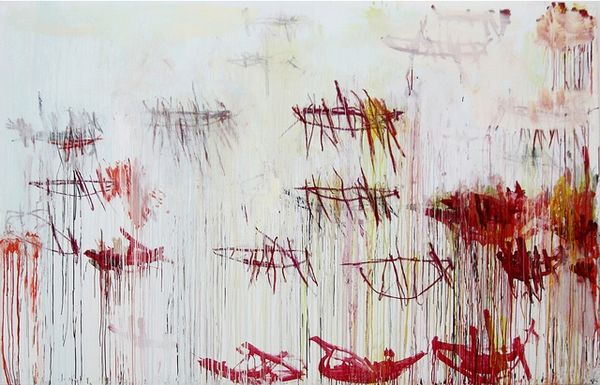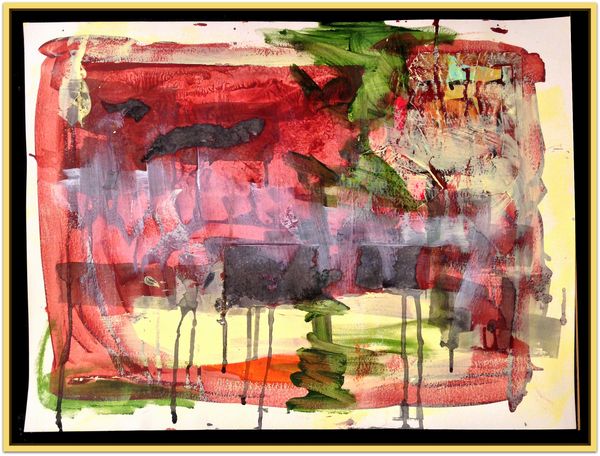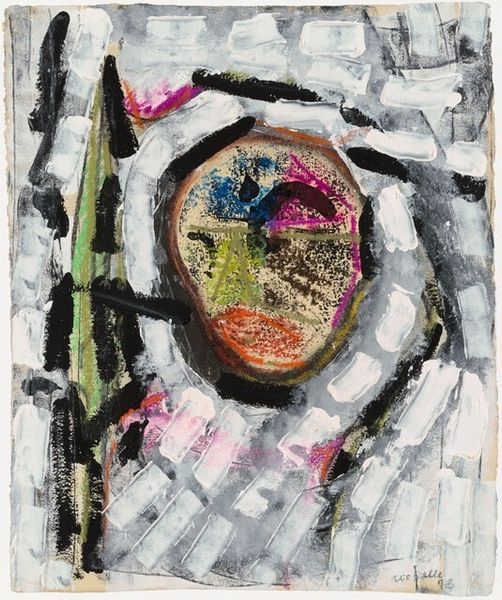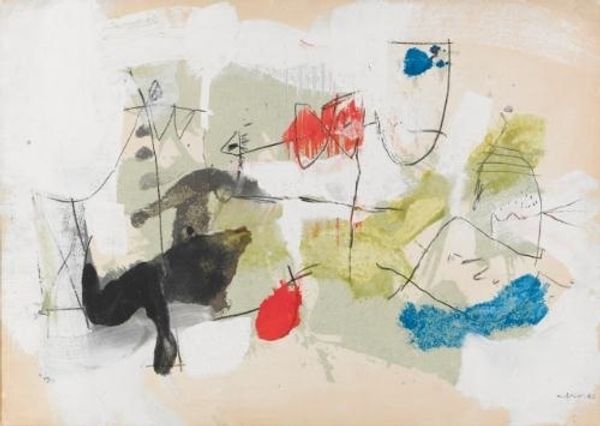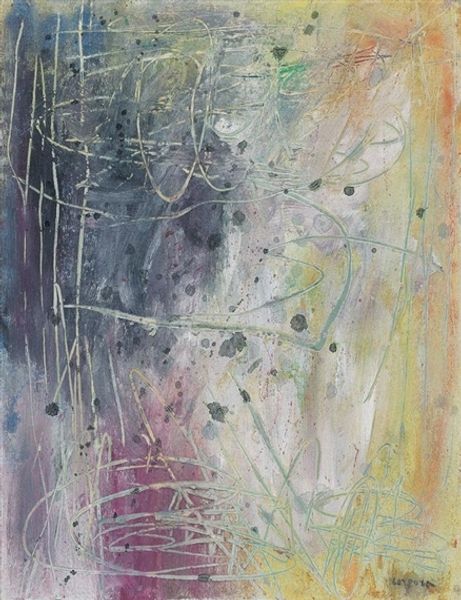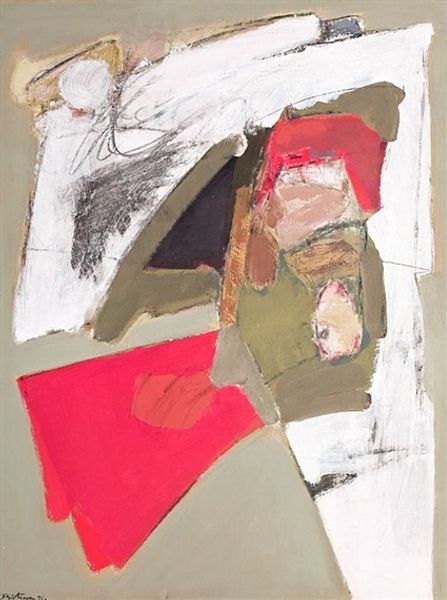
painting, watercolor
#
abstract-expressionism
#
water colours
#
painting
#
figuration
#
watercolor
#
neo-dada
#
black-mountain-college
#
abstraction
#
watercolor
Dimensions: 36.8 x 29.2 cm
Copyright: © 2019 Robert Rauschenberg Foundation. All right reserved.
Editor: Here we have Robert Rauschenberg's "Canto XIV, From XXIV Drawings from Dante's Inferno", created in 1959, utilizing watercolor. The abstract shapes and faint figures give me an uneasy feeling, like fragmented memories. How do you interpret this work, especially considering the "Inferno" reference? Curator: Given the Inferno context and Rauschenberg’s social awareness, I view this as a critique of power and its impact. Note the ghostlike figures; their anonymity speaks volumes. The art world itself is a social institution. How does the institutional setting, the gallery, affect our perception of this seemingly chaotic composition? Editor: That's interesting! It makes me consider the power dynamics within the art world too - who gets seen, whose stories are told. The faint figures could represent those marginalized by power. Curator: Precisely! And think about Rauschenberg’s choice of medium. Watercolor is delicate, easily washed away. Is he suggesting the impermanence of power structures, or the ease with which historical narratives can be erased and rewritten? Editor: The watercolor really emphasizes that sense of fragility. So, Rauschenberg might be prompting us to reflect on the fleeting nature of power and its impact on society. Curator: Exactly. Considering Abstract Expressionism’s broader role at the time, supported and exported as a beacon of American freedom, could this series on Dante also be read as a counter narrative? A critique of the narratives being promoted? Editor: That's a powerful perspective. I hadn't considered the political undercurrents. The painting now seems like a challenge to established interpretations, even a subversive commentary on art as a political tool. I will definitely have a different approach next time I face art from this period. Curator: And I hope you consider how important it is to understand the broader socio-political moment that is essential for contextualizing art. Keep questioning the narratives!
Comments
No comments
Be the first to comment and join the conversation on the ultimate creative platform.
